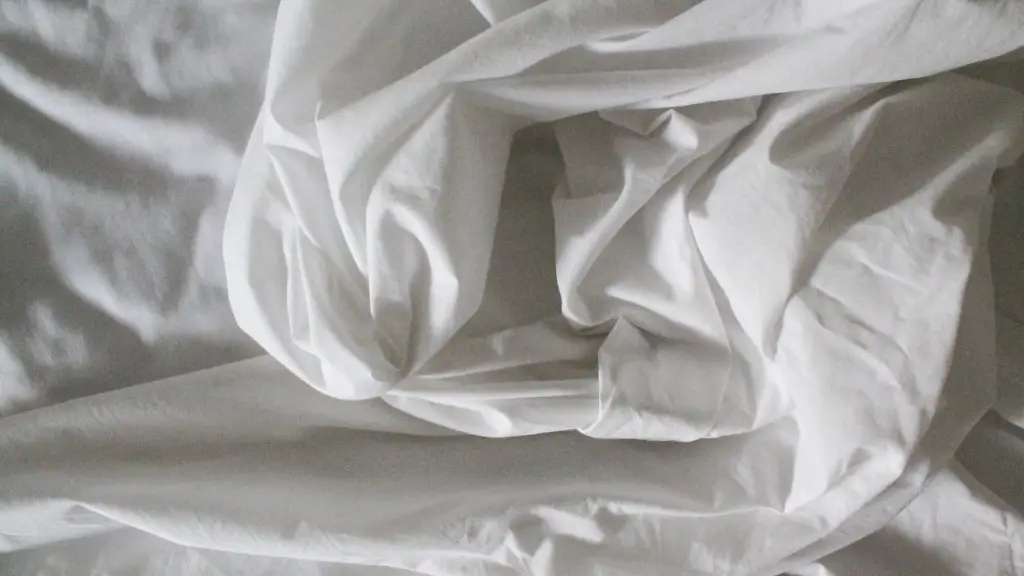Fever dreams are often described as being particularly vivid, intense, or strange. Some people report feeling as though they are living in a dream or a nightmare during a fever dream. Although the content of fever dreams can vary widely, they often contain themes of fear or anxiety.
There is no one answer to why fever dreams can be so weird. Some researchers believe that fever dreams may be a way for the brain to process and make sense of the intense emotions and experiences that can come with a fever. Other experts suggest that fever dreams may be a way for the brain to relieve stress or unregulated body temperature.
There is no one answer to this question as people experience fever dreams in different ways. Some people report having very realistic and vivid fever dreams, while others remember them as being more bizarre and surreal. It is speculated that fever dreams are caused by the increased body temperature associated with fever, which can lead to changes in brain activity and neurotransmitter levels. This can explain why fever dreams may be more intense and strange than regular dreams.
Why are dreams so weird when sick?
Elevated brain temperatures can disrupt the brain’s normal cognitive processes, according to a new study. The research, published in the journal Frontiers in Psychology, suggests that feverish dreams may be the result of the brain’s impaired function during periods of high fever.
Lead author Michael Schredl, of the Central Institute of Mental Health in Germany, and his colleagues say that their findings could have implications for the treatment of feverish patients, as well as for our understanding of the brain’s role in dreaming.
The study was based on a survey of nearly 1,000 people from Germany, Austria and Switzerland. The participants were asked about their dreams during periods of high fever, and their responses were compared to those of a control group who did not report any feverish dreams.
The results showed that people who experienced feverish dreams were more likely to report dream features such as fear, aggression and bizarre content. They were also more likely to wake up from their dreams feeling tired and exhausted.
Schredl and his coauthors say that the findings suggest that elevated brain temperatures could disrupt the brain’s normal cognitive processes, leading to the production of dreams with unusual and unpleasant qualities.
Fever dreams are not necessarily bad for the body. Although most dreams take place during REM sleep, when leg and arm muscles are temporarily paralyzed, sleepers are unlikely to act out their dreams. However, sleepers may experience unpleasant or negative dreams. They may wake feeling unsettled or uncomfortable.
What are fever dreams like
A fever dream is a type of dream that can occur when you have a fever. Fever dreams are often emotionally intense, troubling, strange, or scary. They may also include less social interaction than normal dreams.
Fever dreams can be extremely frightening and unpredictable, often feeling very real. They are caused by a high body temperature and can be very intense and vivid. If you are experiencing a fever dream, try to relax and remind yourself that it is not real. If you are having trouble calming down, speak to a doctor or medical professional.
Why do fevers spike at night?
Cortisol is a hormone that is produced by the adrenal gland. It is released in response to stress and is responsible for the body’s fight-or-flight response. Cortisol is closely linked to the immune system and suppresses the immune system when levels are high. When cortisol levels go down at night, the immune system is more active and this is why fevers often spike at night.
Sleeping when you’re sick can be difficult, but there are some things you can do to make it easier. Try sleeping with your head propped up, so you’re not lying flat. Avoid cold medications that may keep you awake. Taking a hot shower or bath before bed can also help. And using a humidifier in your bedroom can help prevent stuffy, congested airways.
Why do they call it a fever dream?
Fever dreams are strange, often negatively-toned dreams one can experience with a higher-than-normal body temperature. While they can be caused by a number of different things, they are most often associated with illness or infection. With the outbreak of COVID-19, many people have experienced these types of dreams as their bodies fight off the virus.
If you are experiencing fever hallucinations, there are a few things you can do at home to help resolve them. Taking acetaminophen or ibuprofen can help to reduce the fever. It is also important to drink lots of fluids and to stay cool by taking tepid baths or using cool compresses. If symptoms do not improve, it is important to seek medical attention.
Should you use a blanket if you have a fever
If you have a fever, it is best to dress lightly. Wearing too many layers of clothing can make it difficult to reduce your body temperature. If you have chills, try wearing a single, light layer of clothing and using one lightweight blanket. If your temperature is above 103ºF, you should notify your doctor.
A fever is when your body temperature rises above its normal set point. Your body temperature set point is different for everyone. A fever occurs when your body is trying to fight off an infection or heal from an injury. The three phases of a fever are: 1) your body reacts and heats up; 2) your blood and lymphatic system make white blood cells, which fight infection; and 3) the fever levels off. In the second phase of a fever, the amount of heat you make and lose is the same. Cooling down.
How does the ER treat high fever?
Acetaminophen (Tylenol) and nonsteroidal anti-inflammatory drugs (NSAIDs), such as ibuprofen (Advil, Motrin), are effective treatments for the pain and inflammation associated with toothaches. Your doctor will prescribe the appropriate medication for your particular situation. If there is an underlying infection, your doctor will also prescribe antibiotics to clear the infection.
A fan can help circulate air in a room and prevent stuffiness, but it can also have some drawbacks. If the air from the fan is too dry, it can lead to an overproduction of mucus, which can cause headaches, a stuffy nose, sore throat, or even snoring. If you’re already feeling under the weather, a fan can make your symptoms worse.
Does sleeping too much worsen fever
There is some truth to the old saying that “rest is the best medicine.” When we are sick, our bodies need time to heal. That doesn’t mean, however, that we should just stay in bed all day. A little bit of activity is good for us, but too much can tax our systems and make us feel worse.
The best thing to do when you have a fever is to strike a balance between rest and activity. Get enough sleep to allow your body to heal, but don’t stay in bed all day. Move around enough to keep your circulation going, but don’t overdo it. And, of course, drink plenty of fluids.
A cool environment can help to keep your child comfortable if they have a fever. You can adjust the temperature in the room or house accordingly to help keep them cool. Additionally, sleeping with only a light blanket or sheet can also help to keep your child cool and comfortable.
What dreams feel real?
Lucid dreams are pretty cool because you are aware that you are dreaming and can even control the events in your dream. It’s like you are directing your own movie! They can be pretty vivid and feel very real.
If you have a fever, it’s important to drink plenty of fluids and get rest. You may also need to take over-the-counter medicines to reduce your fever, such as acetaminophen or ibuprofen. If your fever lasts more than a few days or is very high, you should see a doctor.
At what temperature does a fever make you delirious
If your child has a high fever, they may be at risk for hallucinations. This is more likely to occur in adults, but it is still possible for children to experience hallucinations while feverish. If your child starts seeing things that aren’t really there, it could be a sign that their fever is too high. Monitor your child closely and consult with a doctor if you have any concerns.
If you have a fever, it is important to rest and drink plenty of fluids. Medication is not typically needed, but you should call the doctor if the fever is accompanied by a severe headache, stiff neck, shortness of breath, or other unusual signs or symptoms. If you’re uncomfortable, you can take acetaminophen (Tylenol, others), ibuprofen (Advil, Motrin IB, others) or aspirin.
Conclusion
Fever dreams are so weird because they are a result of the body’s response to a fever. The body’s temperature increase causes the brain to release chemicals that can cause hallucinations.
There is no one answer to this question as people can have different experiences with fever dreams. They may be vivid and strange because the fever is affecting the brain and causing changes in consciousness. Some people may have lucid fever dreams, which means they are aware that they are dreaming and can control the dream. Others may have nightmares that are full of fear and anxiety. Whatever the reason, fever dreams can be a strange and confusing experience.





